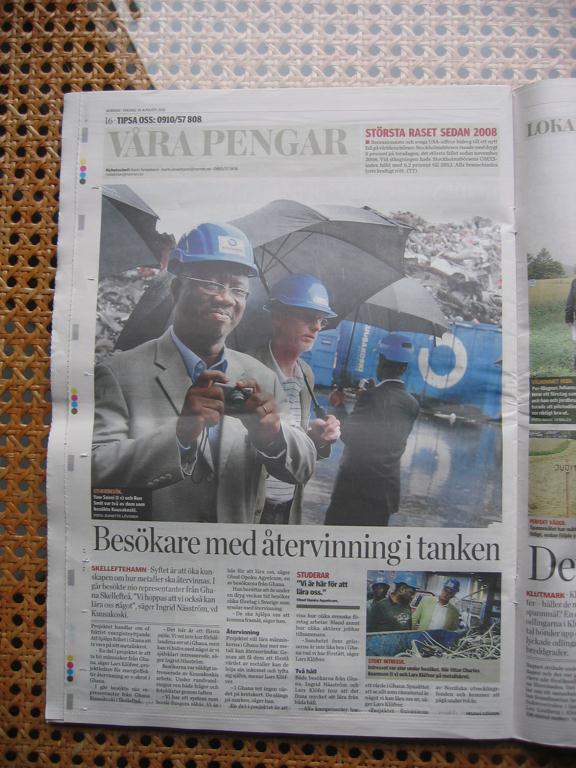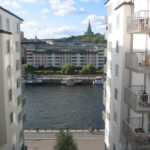More news from the study tour mentioned in the previous blog post. We have been visiting a number of organisations in Sweden, including the Swedish EPA, recyclers like Kuusakoski, the municipality of Skellefteå, and Boliden, who operate a number of mines, as well as a large smelter (Rönskär, at nearby Skelleftehamn). The idea is to study ways to upgrade the current rough-and-ready (to put it mildly!) recycling of metals in Ghana. Skellefteå and Kuusakoski are both involved in so-called “city mining”, recovering metals from industrial and domestic waste, and Boliden currently processes this secondary raw material. They are in fact building a new smelter, due to go on stream during the first quarter of 2012, dedicated to process e-scrap. Adding this to the existing smelter, which also processes lead concentrates, will almost triple total capacity for the processing of e-scrap, to 120,000 tonnes per year.
At Kuusakoski, I was surprised to learn that some of the material being recycled is extremely valuable. A batch of printed circuit boards, for instance, could contain between 30 and 50% copper and 50-250 g/t gold (no, I did not forget a comma there!), and even more silver. Smelters like Boliden’s Rönskär are understandably keen to access such high-grade “ore”! Moreover, the plastic from the same circuit boards yields excess energy, used for steam generation for the generation of electricity, as well as for district heating.
There is considerable excitement within the Ghanaian group, and we are all grappling with the potential of recycling e-waste from the Agbogbloshie site in Accra, Ghana.


